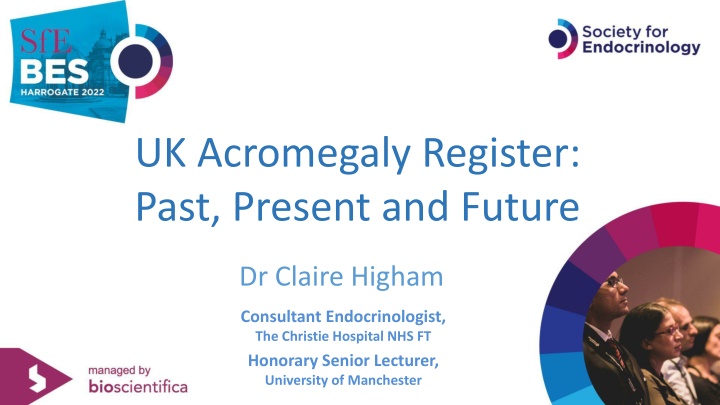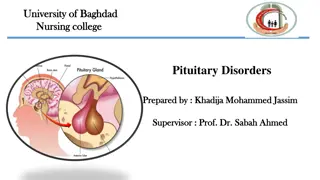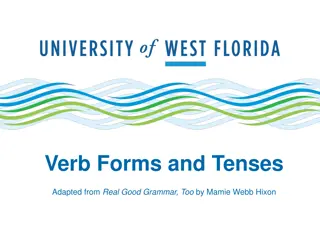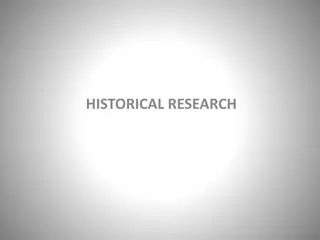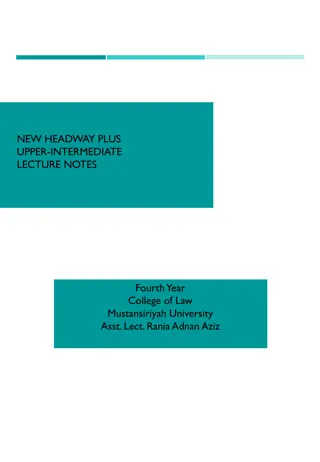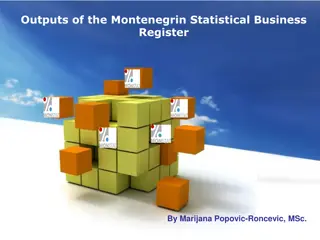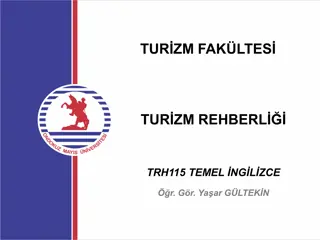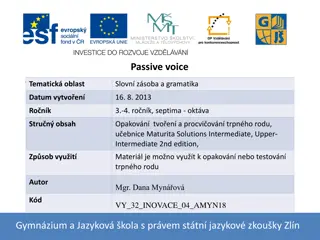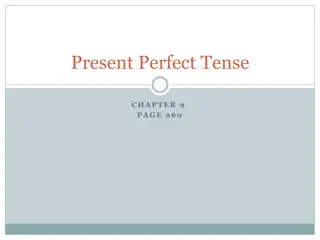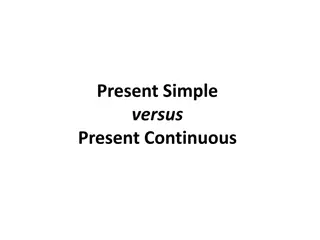UK Acromegaly Register: Past, Present, and Future Research Overview
The UK Acromegaly Register (UKAR) is a long-standing project initiated in 1997 to gather data on patients with acromegaly in the UK. Led by Dr. Claire Higham, the register aims to provide epidemiological insights into the long-term outcomes of acromegaly patients undergoing different treatments. It has been instrumental in publishing studies on treatment outcomes and mortality rates in acromegaly patients. The register has faced challenges, with recruitment suspended in 2018, but its data remains valuable for medical research and patient care.
Download Presentation

Please find below an Image/Link to download the presentation.
The content on the website is provided AS IS for your information and personal use only. It may not be sold, licensed, or shared on other websites without obtaining consent from the author.If you encounter any issues during the download, it is possible that the publisher has removed the file from their server.
You are allowed to download the files provided on this website for personal or commercial use, subject to the condition that they are used lawfully. All files are the property of their respective owners.
The content on the website is provided AS IS for your information and personal use only. It may not be sold, licensed, or shared on other websites without obtaining consent from the author.
E N D
Presentation Transcript
UK Acromegaly Register: Past, Present and Future Dr Claire Higham Consultant Endocrinologist, The Christie Hospital NHS FT Honorary Senior Lecturer, University of Manchester
SfE BES 2022- Conflict Of Interest Name: Claire Higham I declare that I have no potential conflict of interest.
UKAR Past History Initiated in 1997 Society for Endocrinology involvement 2002 Ethics approval (CRN support) as registry 2006 Sponsor: Christie NHS Foundation Trust Chief Investigator: Professor Peter Trainer Previous Funding: Clinical Endocrinology Trust Ipsen Novartis Pfizer Pharmacia Recruitment 1997-2017 (20 yrs) Follow-up recordings stopped 2018 Registry on temporary halt 2020
UKAR Acromegaly 4-6 new cases per million per year (UK approx. 350 cases/yr) Prevalence 40-60 per million (UK approx. 3,500 cases) 3563 patients (one of largest global registries) 809 deceased 52 discharged 288 lost to follow-up 38 moved address
UKAR Aims to gather prospective and retrospective data on a large series of patients with acromegaly in UK to use the data to provide epidemiological data about long term mortality and morbidity in acromegaly to provide data on results of treatment by surgery, radiotherapy and medical therapy to disseminate data in peer reviewed journals, conferences and feedback to patient support groups to encourage centres to audit own practice against national dataset Methods Observational, non interventional study Patient consented and data collected at routine clinic appointment entered into central database Local and Centralised (IDS) IGF-1/GH measurements Data linked to HSIC data: death and cancer registry
Past Publications Past Publications Conventional pituitary irradiation is effective in lowering serum growth hormone and insulin-like growth factor-I in patients with acromegaly Jenkins PJ, Bates P, Carson MN, Stewart PM, Wass JA.. J Clin Endocrinol Metab. 2006 Apr; 91(4): 1239-45 Wide variation in surgical outcomes for acromegaly in the UK Bates PR, Carson MN, Trainer PJ, Wass JA; UK National Acromegaly Register Study Group (UKAR-2).. Clin Endocrinol 2008;68(1):136-42. Control of GH and IGF1 in acromegaly in the UK: Responses to medical treatment Howlett TA, Willis D, Walker G, Wass J, Trainer PJ & UK National Acromegaly Register Investigators 2012.. ICE/ECE 2012 P1427. PMID:23574573 Control of growth hormone and IGF1 in patients with acromegaly in the UK: responses to medical treatment with somatostatin analogues and dopamine agonists. Howlett TA, Willis D, Walker G, Wass JA, Trainer PJ; UK Acromegaly Register Study Group (UKAR-3). Clin Endocrinol (Oxf). 2013 Apr 11. doi: 10.1111/cen.12207. Radiosurgery is Effective for the Treatment of Acromegaly. Robins, James & Ayuk, J. & Trainer, P. & Newell- Price, John. (2014). Stereotactic Gamma Knife Journal of Neurological Surgery Part B: Skull Base. 75.
UKAR Present Steering Group recommenced 2020 Review/approve/decline requests for data Review/approve/decline abstracts/manuscripts before submission Determination of whether registry should re-open/close Current Committee Dr Claire Higham : chair and CI (since 2021) Dr John Ayuk Professor John Wass Dr Tara Kearney Dr Prakash Abraham Dr Daniel Flanagan Dr Stephen Orme Professor Maralyn Druce Dr Steven Hunter
UKAR Present Steering Group recommenced 2020 Review/approve requests for data Review/approve abstracts/manuscripts before submission Determination of whether registry should re-open/close Collaborations Netherlands: discharge after successful trans-sphenoidal surgery Dr van Beek international, multicenter, evidence-based guideline for discharge of acromegaly patients from endocrine follow-up after successful transsphenoidal surgery based on recurrence risk and presence of hypopituitarism. Ongoing Projects GH/IGF-1 measurement and assays (Phil Monaghan) GH/IGF-1 discrepancy and mortality (John Wass) Mortality and morbidity (Steve Orme) Gigantism (Marta Korbonitz and John Wass)
What information is in the UK dataset? Baseline Characteristics Clinical features Tumour characteristics and imaging GH and IGF-1 results Pituitary function Other rare features Co morbidities Cardiovascular and metabolic (echocardiogram, CV (BP etc) and diabetes markers) gallstones oncological (colonoscopy) Treatment Characteristics Surgery (type, date, complications, histology) Radiotherapy (type, date) Medical Therapies (type, dose, duration) Longitudinal data GH and IGF-1 (local and centralised) recurrence evolving complications, medications
Increased mortality in acromegaly is mainly due to vascular and respiratory disease and is normalised by control of GH secretion Mortality Data n= 1845 1970-2016 Cancer Mortality Data Linkage to NHS Digital Health and Social Care Information Centre - GOV.UK Orme SM, McNally R, et al.. J Endocr Soc. 2020;4(suppl 1):SUN-LB48.
The impact of variations in laboratory measurements of IGF-1 and random GH on the classification of acromegaly disease activity status: Lessons from the UK Acromegaly Register Reference Laboratory 5 local centres 4 different assays good correlation reference ranges Bashir et al Endocrine Abstracts (2020) 70 AEP657 | DOI: 10.1530/endoabs.70.AEP657
Discordant growth hormone and insulin like growth factor-1 values are associated with an increased mortality over concordant normal values in patients treated for acromegaly n = 2138 41,331 person-yrs follow up 29 centres 1210 normal GH and IGF-1 326 high GH and high IGF-1 429 high GH normal IGF-1 173 normal GH high IGF-1 Abeyaratne D et al EndocrineAbstracts (2021) 77 OP3.1 | DOI: 10.1530/endoabs.77.OP3.1
Registry Data: Quality of Data IGF-1 reported without units or with incorrect units No local reference range provided for IGF-1 Discrepancy in reporting IGF-1 as high when actual value within limits request to all participating sites to update local IGF-1 data inputs with units and RR from the sample time request to all participating sites to supply assay type/units/reference ranges across the time frame
UKAR Future Global Acromegaly Registry (UK data provided) John Ayuk submission of research questions to global dataset Unanswered questions from current dataset submit proposals/discuss with UKAR committee clinical@endocrinology.org Open UKAR database again enthusiasm funding updating and extending dataset personalised care approach PROMS/QOL biochemical parameters/quality of data entry developing/auditing standards of care coding and linkage to national datasets
GLOBAL ACROMEGALY REGISTRY Project Update 2 Live Sites Korea Severance Hospital launched June 13th, 2022 Additional Korean sites coming onboard this year! Oregon Health & Science University launched October 24th, 2022 Prospective Sites (New Registries) 2 Data Mapping and Integration AcroStudy data is available for research Retrospective UK data mapping is in progress Retrospective Data Partners (Existing data integrated) Other Progress Liege Acromegaly Study contracting in progress Austria Contracting in progress US: MGH & Barrow Neurological Institute program development underway 5789 Unique Patients Entered
